March 11, 2024, by bbztlg
Reflecting on responsible research and innovation: placing people, practice and projects in the picture
In this piece Dr Alan Chamberlain reflects on the nature of responsible innovation in different contexts in the academic research ecosystem.
Written by Dr Alan Chamberlain, with input from: Dr Oliver Butler (School of Law), Prof Katherine Linehan (PVC for EDI, People & Culture) and Prof Richard Graham (APVC for the Researcher Academy and Researcher Career Development)
Introduction
In terms of our ongoing research projects, one of the things that I’ve been thinking about recently has been, “How do we place ourselves and the values, concerns, and motivations of others within a designing for responsibility” framework? This is a complex area to think about. Often there are no shared notions of responsibility and accountability across the different structures within which researchers work.
These structures, in a very simplistic way can range across settings relating to the personal/individual, community, project-based and organisational. Within each of these settings it may be the case that there is no alignment of individual notions of responsibility, and in some cases no policies are adopted by an organisation or at a project level. This makes it difficult for people to understand the motivations and aims of a given project – in relation to what is perceived as responsible.
In many respects, to fully appreciate the nature of what responsible means in a given context and what it is to design responsibly, researchers need to observe and engage in the practice of design, and personally reflect on the nature of what responsible design is to them. In this way responsible design can be practice-based, personal, policy-driven, and philosophical.
In this short piece I’m going to discuss some insights and issues that have emerged for me when I reflect on the research and policy-driven, governance work that I’m involved in as a research-focused researcher, looking towards developing responsible research and innovation ecosystems, methods/approaches and systems.
Inclusive by design
It’s often the case that as we strive to develop, champion and shape systems for the good that we are concerned about the ways that we might be perceived as ‘rocking the boat’, and that this may impact upon our career – this is particularly an issue for researchers on contracts, and for mid-career researchers whose academic standing and career is based purely within the research ecosystem, sometimes for decades.
In my experience, firstly, as a Research Staff Representative for the Faculty of Science, and now as the Chair of the Research Staff group, I’ve found the exact opposite, I’ve found that people listen, respond, act and feedback. People genuinely appreciate it when you share authentic lived experience. There is genuine, meaningful dialogue which I feel is resulting in a culture of positive change for research-focused staff at the University of Nottingham. Being able to share ideas, plan and talk openly and honestly creates dialogue, and through this dialogue we can appreciate different people’s positions and engender an inclusive by design approach.
We have some exciting projects and policy discussions which are happening at the moment, led by the APVC for the Researcher Academy and Researcher Career Development – Prof Richard Graham, and PVC for EDI, People and Culture – Prof Katherine Linehan who, together with their teams are taking a responsible, inclusive design approach to innovation in terms of developing our research culture at the University of Nottingham.
Faith and belief
As part of an ongoing Agile research project Dr Oliver Butler and myself have been thinking about the issues which exist around the area of faith and belief to inform the responsible design of technologies in this space (funded by Horizon DER). It’s worth noting that when we examine the interplay of EDI and Responsible Innovation (and design) that we need to fully appreciate that there are characteristics that are protected by law in the UK, such as outlined, in our case – in the Equalities Act.
For us there are additional questions which we’ve asked ourselves about how does one sensitise to a given belief-based context, how are we perceived and how do we appreciate the context which we are working in – who do we ask? Something that we are examining is responsible design and its relationship to the legal complexities around freedom of expression, privacy, and data protection.
It’s important to emphasise that we’ve spoken to a range of people, who have been extremely open and insightful, and it’s this dialogue, and our openness and honestly about what we know, and don’t know which has led us to have a greater understanding of the bounds in which we are working. This dialogue with people and with each other (we discuss this for hours!) is enabling us to develop an evolving responsible stance, which in this space can differ from person to person (and across stakeholders).
In this context there are some decisions that we have made – for example, we want to understand and support people to design technologies which relate to their beliefs and practices so we can design in responsible way, but we also need to be neutral in that space, we need to be respectful and understand the intertwined nature of law (in context, some faith-based), practices and beliefs. This is an area of research where it is important to state one’s positionality and values when engaging in research.
Wellbeing, identity and representation
In another project with Dr Emanuela Vai and Prof Dave De Roure, we’ve started to examine the ways in which we can re-imagine the Bate Collection using AI-based tools as a way for people to start to envisage themselves as part of the collection or represent the under-represented in the collection. This is something that we’ve thought about quite a lot, and one of the things that I’ve developed is a framework to do this, which I’m currently writing up.
We’ve also decided that what we want to do is to enable people to use AI-based tools in order that they can have a voice. This includes curators, archivists, and arts & humanities scholars, as well as the public. We have a responsibility to give people a voice, but we have decided that we are not the voice that needs to be heard in this context. This project is ongoing and links into our discussions around technology, heritage, wellbeing and identity – we are looking at ways to embed and develop the findings of this UNESCO Report.
Conclusion
Like all of us, when we engage in dialogue there are things we might agree and disagree with, and there are things which we feel comfortable and uncomfortable about. These disagreements and discomfort can sometimes cause friction, but engaging in dialogue and listening can sometimes lead to mutual understandings and respect, that can inform more responsible ways of, as one of my colleagues would say of “doing research”. I think that without reflecting on and placing ourselves in the wider context of research we put ourselves in a weaker position.
We need to be open about our own position in the wider research ecosystem, and embrace the positive impacts that that being truthful, honest, and responsible can bring. At every step of the responsible design journey – from our conditions of employment, through to the adoption of responsible innovation and engagement policies at a project level, to our use of inclusive and participatory approaches to work with and engage people – we need to take on the responsibility and champion for inclusion, equity, and fairness.
This is only a short piece, but hopefully some of the things that I’ve written about might make us reflect on the wider nature of responsibility and enable us to reason about the related responsibility concerns in the academic system, which go beyond ‘responsibility’ solely being focused in a research project or design.
Dr Alan Chamberlain, is the Chair of the Research Staff Group – University of Nottingham
HoRRIzon, TAS RRI & TAS RRI II – Co-Principle Investigator, with Prof Greenhalgh
Hybrid Relics – Principle Investigator
RAKE – Co-Investigator
Currently Alan is developing a Critical Reflective AI Network to bring together scholars and technologists with and interest in AI and the Arts and Humanities. This expands the work from previous Horizon projects and the STAHR-Collective, with funding from RAI UK.
No comments yet, fill out a comment to be the first

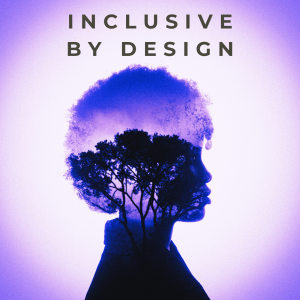

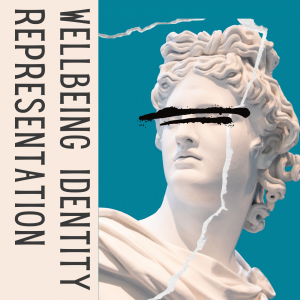
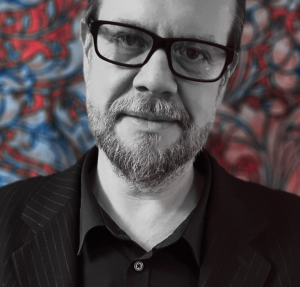


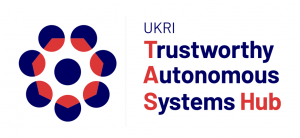
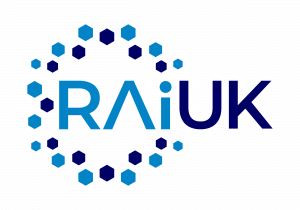
Leave a Reply